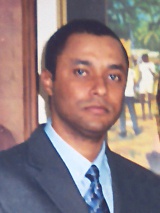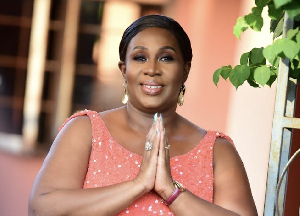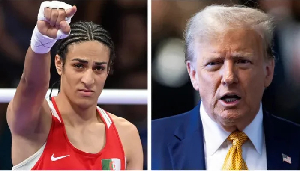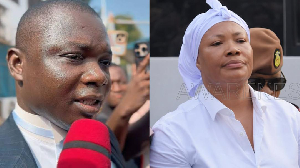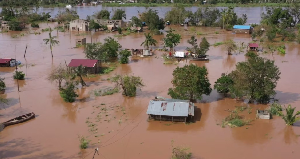This article is about names ? the names we call ourselves because of our Ghanaian extraction, or heritage ? and I expect the contents of this piece to engender an incendiary deliberation among Ghanaians, both at home and in the Diaspora. Yes, I believe the time has come for this tempers-flaring, take-no-prisoners, no-holds-barred topic, certainly a behemoth of an issue, to be tackled and discussed with the openness, sensitivity and ingenuousness that it deserves. Still, no one will be surprised if the peace-loving and idealistically didactic camp, on the one hand, and the invectives-throwing and overtly sarcastic group, on the other, show up to confront the subject matter. I just hope my optimism for a civil discussion does not turn out to be a fleeting illusion.
So, what is in a name? Without a doubt, even as some hurriedly type their responses, rejoinders and comments, which are, by the way, akin to informal surveys for which writers pay nothing ? these rejoinders are salient receptacles of information ? these responders’ systolic and diastolic blood pressure numbers are dangerously spiking. Notwithstanding, the debate must rage on, even as we try to either mollify or vilify one another, based on our varying perspectives about the issue under consideration.
Unarguably, Ghana is a tapestry of various traditions, a smorgasbord of traditional (or native), Middle Eastern and Western beliefs, which has culminated, over time, in a pseudo-paradise in which all of our people have continued to enjoy relative peace and stability. There certainly are no advantages to a presumably autochthonous Ghanaian name, except where some of our leaders deliberately embark on a systematic effort to elevate to positions of authority, without respect for proper academic qualification, certain people with names that conjure identities similar to their own.
It is common knowledge that Ghana’s president is John Agyekum Kufuor. So, why does the president simply not go by the name Agyekum Kufuor? Does Kufuor having a Christian name make him any less of a Ghanaian? “Limann” and “de-Graft Johnson” certainly sound foreign to me, the latter being the surname of Ghana’s vice-president in the Limann-led government of yesteryears. What then is the difference between “Rawlings” and “de-Graft Johnson,” except that people are apt to attack Rawlings’ paternal heritage? Undoubtedly, atrocities were committed during Rawlings’ AFRC and PNDC days, and people ought to be free to lambaste the man for those heinous crimes, but Rawlings is no less a Ghanaian than any other person born on Ghanaian soil!
It is nauseating to read about the avalanche of insinuations and aspersions directed at Nana Amma Obenewaa, in regards to the origin of her name, with some demanding to know why she would not write the Ewe “version” of her name! What nonsense! This astute and patriotic Ghanaian has done far more than many others would ever do in a lifetime for their country: the articles she continues to publish on ghanaweb.com have awakened many educated Ghanaians to hold the nation’s leaders accountable to the citizenry.
Yes, one may not agree with everything Obenewaa has put out on Ghanaweb.com so far, but for people to constantly berate her personality, including her name, rather than debate the issues, points to ignorance and downright inanity. Because of the insults directed at her, Obenewaa once threatened to leave Ghanaweb.com for good, but several people encouraged her to stay, a move I completely favored as well, for although we may all disagree sometimes on the issues, Obenewaa’s contributions to our consciousness as Ghanaians cannot be ignored. My middle name is “Kwesi,” and I chose to not use the variant “Kosi,” or even “Kwasi,” right from the moment I could write my own name, so why should someone be irked by this personal decision of mine? Are we legislating names in Ghana now?
There are names like “Quainoo,” “Latzoo,” “Mortson,” et cetera, and these names do have the variants “Konu,” “Latsu,” “Mortey,” respectively. So, revisiting the ad nauseam arguments of some misguided people, does the name “Mortey” make its bearer more “Ghanaian” than the person who chooses to be called “Mortson?” Some people simply prefer to go by more traditional Ghanaian names, such as Kwame Barima or Adjei Kweku Sarfo. At the same time, not everyone is interested ? or has the “luck” ? in having such aforementioned names! Should we then frown upon names such as “Michael Essien,” “Augustine Arhinful,” “Timothy Mills,” “Harry Sawyerr,” et cetera, just because they do not appear or sound “Ghanaian” enough for the extremists? If the latter argument were to hold true, then more than one-half of our brothers and sisters from the Central and Western Regions of Ghana would have to be “disenfranchised!”
Attacking others because of their purportedly “foreign-sounding,” or ethnically eccentric, names is thus juvenile, heretical and malevolent. Even in cases where someone intentionally changed his or her name, it is truly a matter of personal introspection. I will share with my readers some of the most famous people who changed their names at one point or another in their lives for personal reasons, although we are also discussing if it is worth losing sleep over the issue of whether or not certain names are intrinsically tied to particular Ghanaian ethnic groups.
Basketball great Kareem Abdul-Jabber was born Ferdinand Lewis Alcindor, Jr. Ben Affleck, the popular movie star, was born Benjamin Geza Affleck-Boldt. Jason Alexander, a man who became famous for his role on the “Seinfeld” show, was born Jason Scott Greenspan. Jennifer Aniston, the ex-wife of Brad Pitt, was born Jennifer Anastassakis. The late Charles Bronson, the no-nonsense protagonist from the “Death Wish” movie series, was born Charles Buchinski. And the late Walter Mathau, famous for his roles in the movies “Denise the Menace” and “Grumpy Old Men,” was born Walter Matuschanskayasky (one probably needs some vigorous temporomandibular joint training to pronounce the latter name correctly!).
Interestingly, it is not only movie stars who see some need to alter their names. Below is a list of some famous political leaders who changed their names at some point in their lives. Spiro Agnew, the 39th Vice-President of the United States, was born Spiro Theodore Anagnostopoulos. Former Israeli Prime Minister David Ben-Gurion was born David Green. The great Emperor of France Napoleon Bonaparte was born Napoleann Buonoparte. And did you know that William Jefferson Clinton, the 42nd President of the United States, was born William Jefferson Blythe, III? What about the late Emperor Haile Selassie of Ethiopia who was born Ras Taffari Makonnen?
The 38th President of the United States, Gerald Ford, was born Leslie Lynch King, Jr. The spiritual leader of Tibet, Tenzin Gyatso (The Dalai Lama) was born Lhama Dhondrub. Ex-Soviet leader Vladimir Ilich Lenin was born Vladimir Ilich Ulyanov. Joseph Stalin, the psychotic ex-Soviet leader, was born Iosif Vissarionovich Dzhugashvilli. And Nelson Mandela, the most prominent African alive today, was born Rolihlahla Mandela. As was the tradition in those days in South Africa, Mandela was given the first name “Nelson” his first day of school by his teacher! Mandela would later make “Rolihlahla” his middle name. So, how many Ghanaians are more “African” in their thinking than Mandela, even while the latter chose to maintain his “European” first name his entire life?
I am calling on all well-meaning and decent Ghanaians to stop this crusade against those with so-called “foreign-sounding” names, who are unquestionably our brothers and sisters from the Central and Western Regions of Ghana, or even other parts of Ghana. We also need to leave in peace people whose names some disgruntled Ghanaians feel are ethnically atypical of certain regions of the nation.
After all, no one owns any names ? they are given to us by our progenitors. How do we know that many of our names are simply not variants of other names that went through the “mills” with the passage of time? Because no one is a repository of all knowledge and wisdom, we ought to be careful about what we say and write, as our ethnocentric and tribalistic effusions and garbs will only deepen the chasms that are already apparent in our society. Who really cares if I am Kwesi and an Akyem, or Kwadjo and an Ashanti, or Kudjo and an Ewe, or Abdulai and a Dagomba?

Views expressed by the author(s) do not necessarily reflect those of GhanaHomePage.

